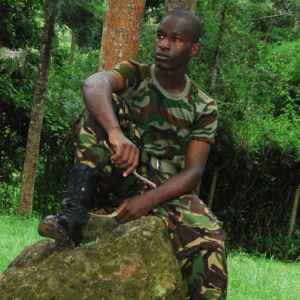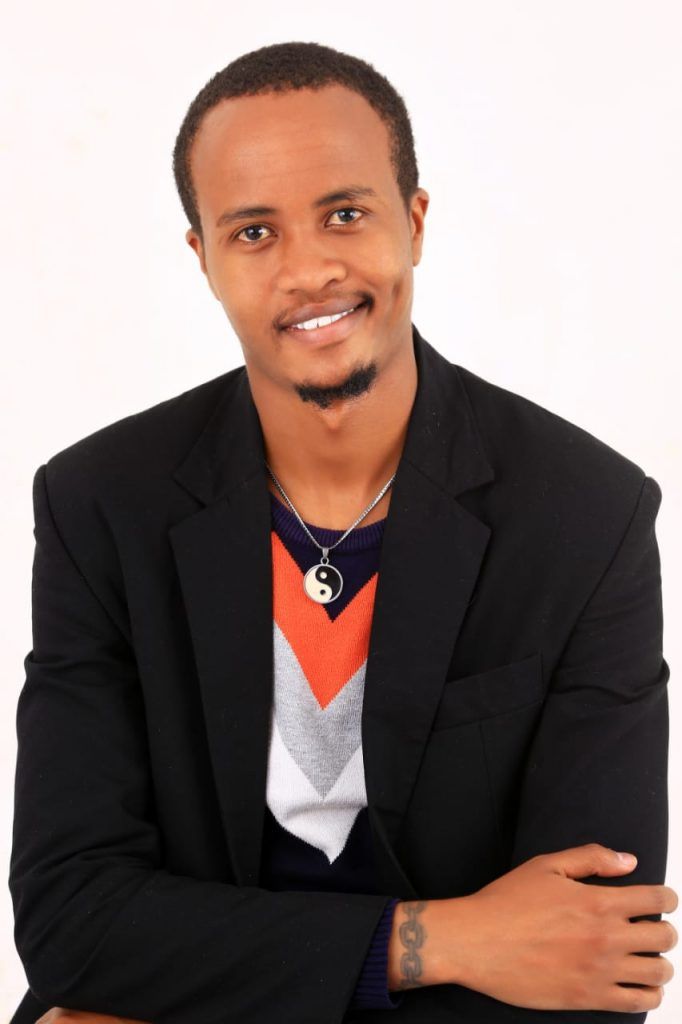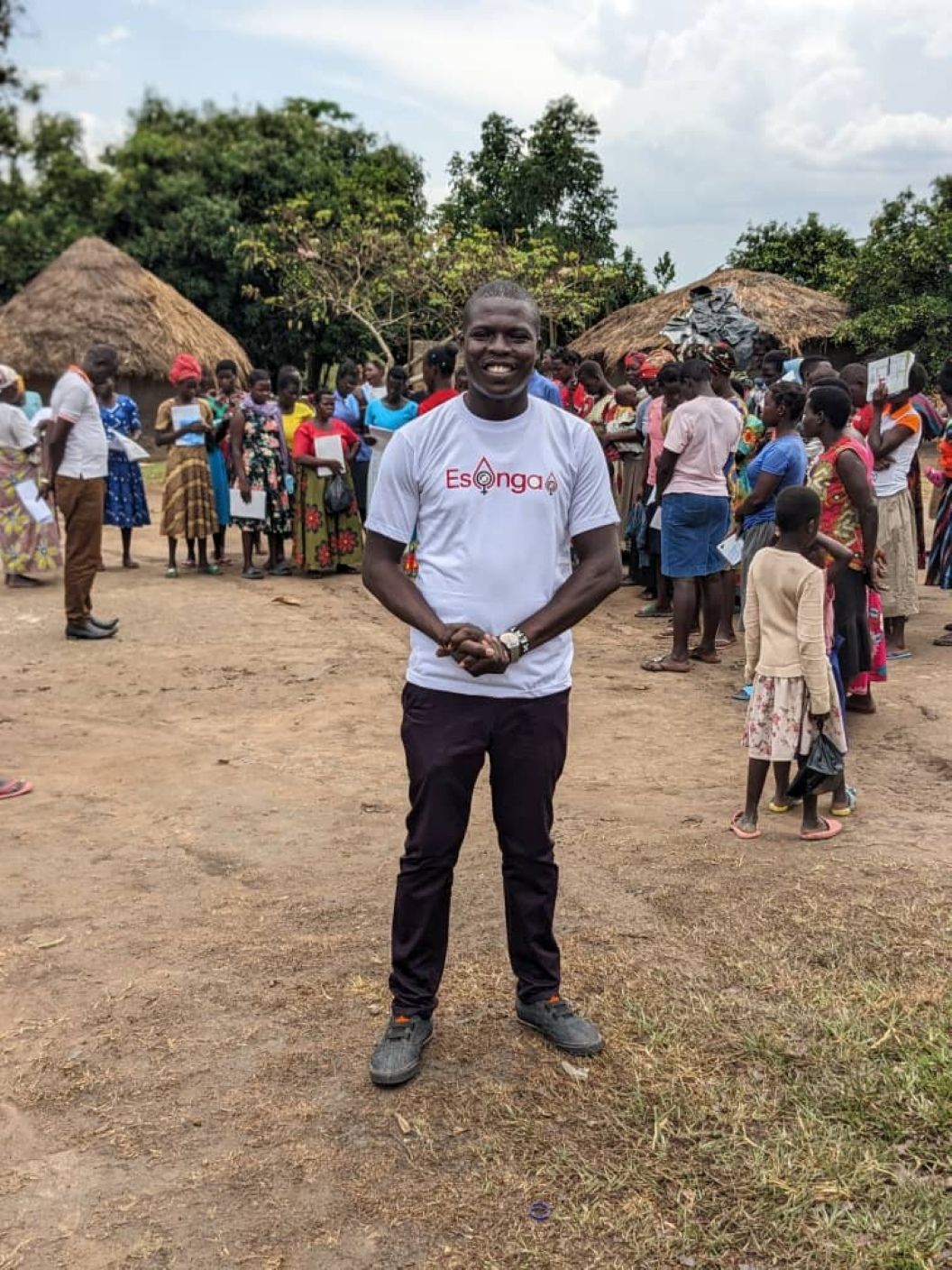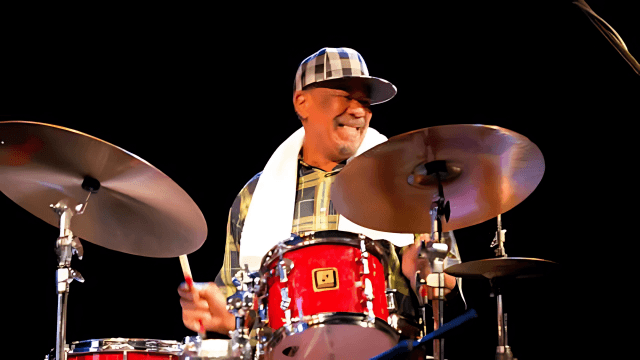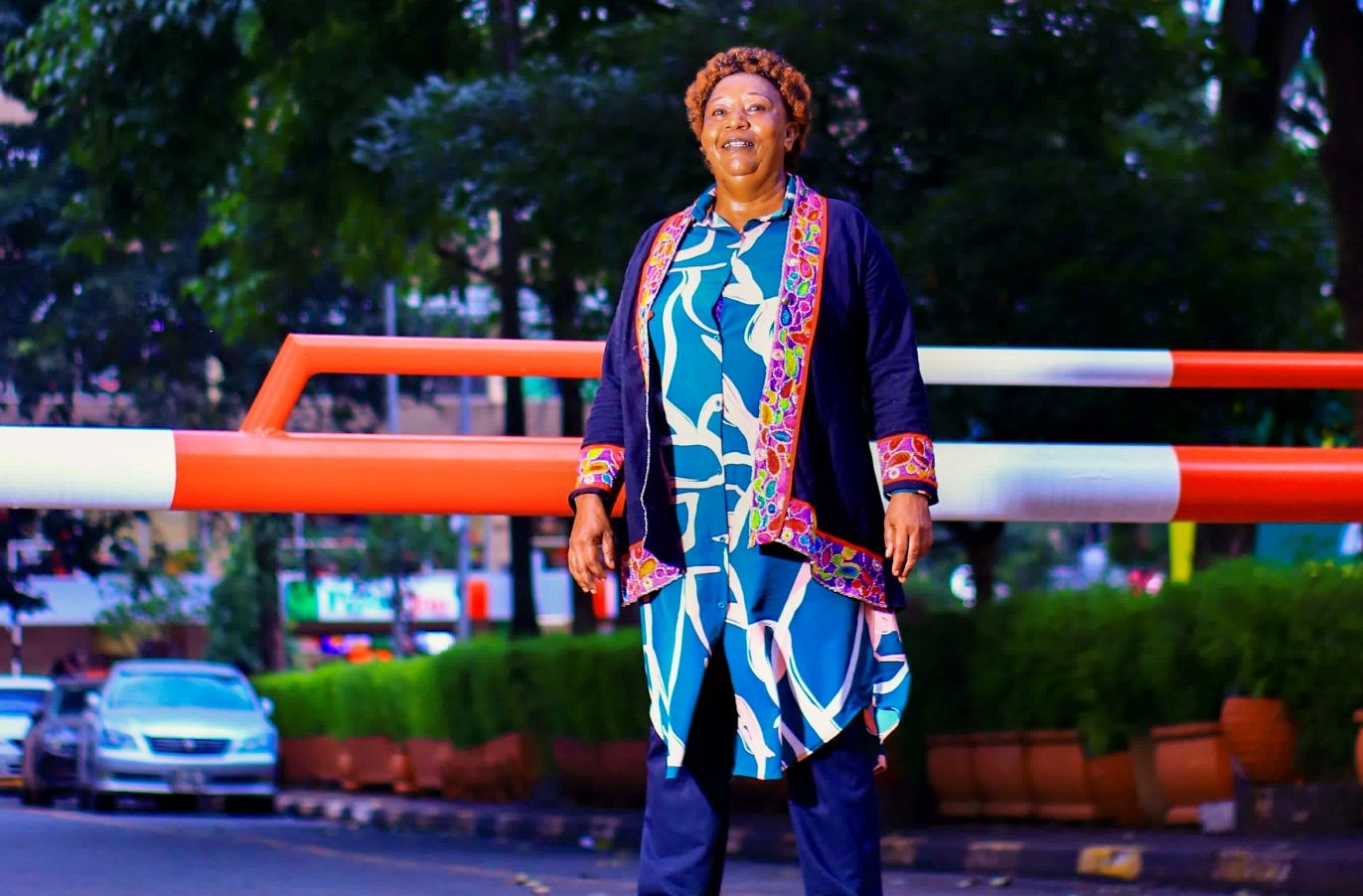Patrick Juma is not your stereotypical man in uniform. When he is not serving his country as a soldier, he is writing poems and fictional stories based on his personal life. His series of works is titled, The Diary of a Lost Soldier.
The 21-year old, has in many instances, risen to prove wrong the axiom that men and women in uniform lack compassion. Recently, he was captured in photographs feeding a street child, and then later palming out the same unspoken kindness to a homeless woman out in the streets of Nairobi.
"I grew up wishing to be a soldier, a desire that was influenced by Richard Connell's film, Deadly Prey", Patrick says.
However, an error on his KCSE certificate threatened to stymie his dream. The certificate identified him as Patric, whereas his national identification card read Patrick. Patrick made the decision to join the National Youth Service (NYS) before finally being allowed to enlist with the Kenya Defence Forces (KDF) in 2019. He works under what is called the assorted or reinforcement lot. This means that in the case the army needs reinforcement, Patrick is called to Kahawa Military Barracks and charged to assist.
The young soldier is currently on an assignment with the NYS, where they are partnering with the youths of Majengo area in Kamukunji to clean up the area. They open clogged drainages and dispose of accumulated garbage that poses health risks to the members of the community. They are also charged with the responsibility of ensuring that the residents use clean water, put on masks, and sanitise their hands during the Coronavirus pandemic.
"It was while on this assignment that my path crossed with that of a street boy along Jogoo road. He was sniffing glue and wasn't wearing a mask", Patrick narrates. "As soon as the boy saw me, he ran, and I chased him, my whip in hand. When I caught up with him, he started pleading with me to spare him. This made me think twice about my next course of action. I knew I needed to handle this in a different way than I'd been taught. I assured him I wasn't going to use the whip on him, but in the same breath asked him to explain why he wasn't wearing a mask".
The panic-stricken boy marshalled up the courage to move closer to Patrick, and, fumbling in the pockets of his scuzzy and worn-out trousers, pulled out a dirty, torn mask.
"These kids are all alone out here; they certainly can't afford masks. They end up recycling one for too long or even picking up those that have been disposed of by other users. I felt for him. We are currently at war, not with visible enemies, but with a slippery and invisible one who has already claimed many lives around the world. As a Serviceman, I knew this wasn't the time to fight with force, but with humanity".
Patrick reached into his bag and gave a new mask to the boy, along with some biscuits. The boy left the scene, filled with gratitude, "Asanti mkubwa", he shouted happily.

"These kids are all alone out here; they certainly can't afford masks. They end up recycling one for too long or even picking up those that have been disposed of by other users.
"In another instance, I met this woman seated on a rock on the roadside. Like the boy, she also wasn't wearing a mask".
Patrick naturally got angry at the heedlessness of Kenyans who ignore government directives; people who fail to grasp the magnitude of the problem we are facing. Surprisingly though, the woman did not run away upon seeing him approaching, as other citizens do. She sat still, long-faced, and gazed at him as though she could see through him.
"At first, I thought she was deaf because she didn't respond. "Wapi mask yako mama?" I demanded to know where her mask was. "The woman responded, wordlessly though, with the tears rolling down her cheeks. All this while, she looked calm, gazing at the distant horizon".
"I realised she was homeless and had probably given up running away from those of us who are out to enforce the rule that all should wear masks. She was ready for whatever was coming at her, and I could only imagine the heaviness in her heart that must have led to the tears. Upon further assessment, I may be wrong, but I realised she might have a mental illness".
Once again, Patrick removed from his pocket, a packet of biscuits and gave it to her.
"She grabbed the packet, ripped it open and hungrily ate the biscuits. As I watched her grind teeth into the biscuits, I wished I could do something more for her. And for the street boy, too. For now, I pulled out a facemask and helped her put it on".

“I wished I could do something more for her”, Patrick Juma.
A razed dorm, sleeping in ditches, and the root of Patrick's compassion
In 2016, while Patrick was close to completing his secondary education at St. Mary's Ukwala High School, the unexpected hit him hard. A dormitory was razed to the ground, and Patrick was wrongfully accused of playing a role in the unfortunate event. The school wrote an expulsion letter and showed him the gate.
"It happened after I lost a school election in which I was vying to be a student leader. The teachers reasoned that the timing of the fire was no coincidence and that the flames which licked down a dormitory represented the bitterness of the students who believed they had unfairly lost in the elections".
The young KDF soldier says that what hurt him the most, however, was his father's reaction- he chose to believe the teachers' story. A strong disciplinarian, he rained hell on his son. That was when Patrick took to the streets of Sirare, Migori county, and joined other street children.
"It was tough. Lacking food, having to beg from people, and sleeping out in the blistering cold. After a month, I couldn't bear life in the streets any more. I went back home", Patrick laments.
To return to his father in Migori town, he had to beg a matatu tout to allow him to travel, as he had no money.
"My father was delighted to see me. He celebrated my return with some serious boozing. My step-mother was happy too. I have since forgiven them for believing that I was one of the culprits who burned down the dorm".
Patrick never knew his biological mother. He says he does not understand what went on between his parents, and to this day, does not know why his mother left. Together with his twin sister, he was brought up by a step-mother. He has four step-siblings.
After the reunion with his father, Patrick went back to school.
"My dad enrolled me at Aluor mixed day school, where I finally cleared my form four".
His experience in the streets had put him through the wringer, and upon completing his form four, Patrick vowed to do the whatever he could to help the homeless, whom he believes have been forced by circumstances to be where they are.

Patrick is currently on an assignment with the NYS, where they are partnering with the youths of Majengo area in Kamukunji to clean up the area.
Police brutality is wrong
About the wound called police brutality, one recently fleshed out during this pandemic that led to a 7 p.m. to 5 a.m. curfew, Patrick says, "Police brutality is wrong. What most Kenyans will never tell you, though, is that they invoke police wrath sometimes. In Mombasa, for instance. The residents began casting stones at some police who were patiently waiting for the curfew to take effect".
He then adds, "However, it would be wrong if we fail to call out the police who are out to tarnish the name of our disciplined forces. Such cops should face the full wrath of the law. We are one, Servicemen and citizens, and we should fight together to overcome the enemy we face today".
"To all men and women in uniform, Kenyans entrust us with their lives. We should never let them down. And to all Kenyans, help us help you. Be vigilant to report police brutality; there are laws to deal with that cancer. But also follow the directives given by the government. They are to protect you and to protect our country. But if you disobey, of course, you will be arrested".
A young leader and aspiring writer
Patrick runs a Facebook account called Leaders in the Making, where he inspires the youth to rise to their true estate and be the leaders our country needs. He is passionate about serving his country.
"My biggest dream is to fully join the army, as opposed to the current partial engagement. I give my best at NYS, and I would wish to enlist in the army so that I can continue serving my country."
A member of Nairobi Literary Café founded and run by award-winning journalist Tom Mwiraria, Patrick has unpublished fictional works such as 'I Missed a Bullet', and 'Diary of a Lost Soldier'. He says that a considerable chunk of his personal life growing up is chronicled in his works. Through his writing, he aims to tell the stories of disciplined forces and contribute to ending terrorism in the world.
A legacy of a soldier, humanitarian, and celebrated author
An ambitious Patrick believes that the future is bright. On what he would want to be remembered for, he says, "A relentless humanitarian. Every time I see a homeless person, my mind ferries me back to my time in the streets. I want to reach out to the homeless. One day, I will build a charity home.
"I would also want to carve my name on the wall of loyal soldiers who served their country to their last breath, and as an author immortalised through the fictional stories, I tell about the life of a soldier".
I look back at my Coys; no one is talking. Everyone seems to be lost in thought. Will they ever make it back home? Personally, l don't give a hoot. For as far as l am concerned, no one save for my father cares about my well-being. Men are thirsty; the water tanker was bombed a few days ago. I chew pieces of army biscuits left in my bag, put on the helmet then silently say, "It shall be well..."
DIARY OF A LOST SOLDIER, Fictional work by Juma Patrick
Also read: 23-Year Old Brian Owino Believes That Impact Is a Matter of Initiative, Not Magnitude

